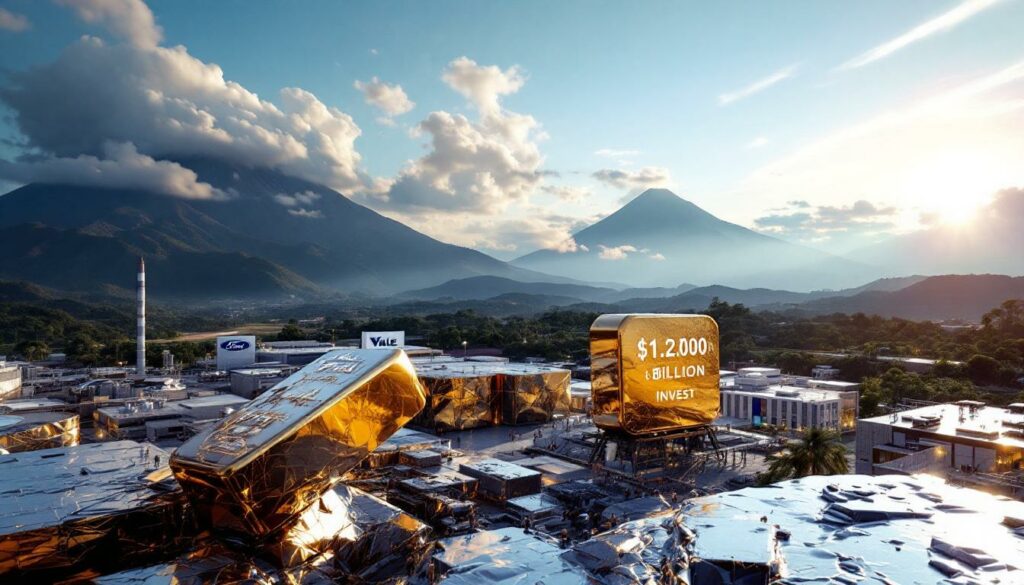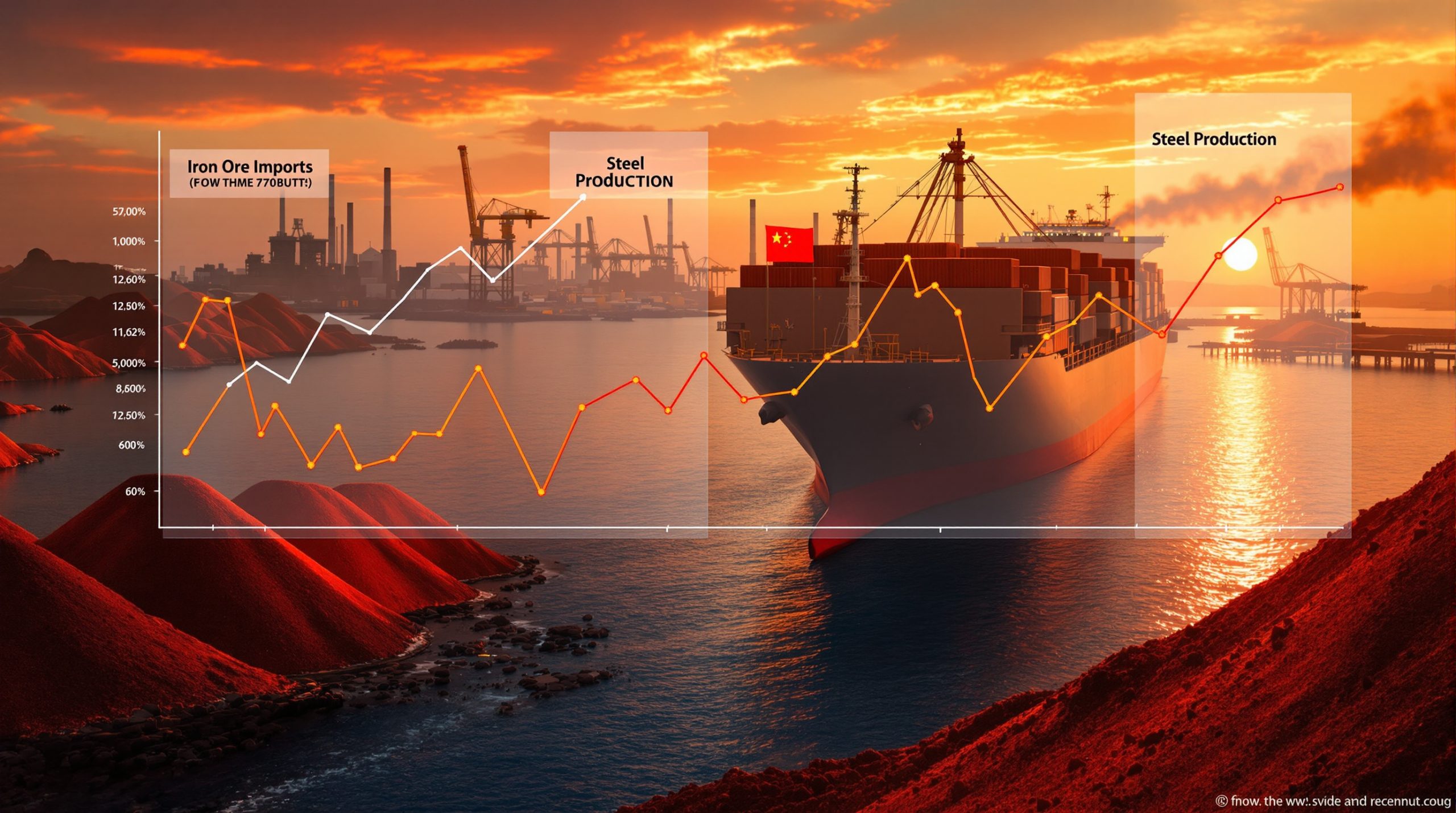Vale Indonesia Secures $1.2 Billion for Strategic Nickel Development
Indonesia's leading nickel producer, Vale Indonesia, is positioning itself for significant expansion with plans to secure up to $1.2 billion in external financing over 2026-2027. This ambitious funding strategy aims to strengthen Indonesia's growing role in the global nickel processing industry and electric vehicle (EV) battery supply chain.
The Two-Phase Financing Plan
Vale Indonesia has outlined a structured approach to raising the necessary capital for its nickel projects. According to Andaru Brahmono Adi, Vale Indonesia's Head of Corporate Finance and Investor Relations, the company will implement its financing strategy in two distinct phases:
- First financing round: Approximately $500 million in syndicated bank loans expected in early 2026
- Second financing phase: Potential entry into the bond market in 2027
- Total projected financing: $1-1.2 billion over the two-year period
"This external funding will be used toward funding our projects. Now we are developing three mines… we are also building HPAL smelters with our partners," stated Andaru Brahmono Adi in a July 2025 announcement.
The financing structure represents a sophisticated hybrid debt approach, combining traditional bank financing with public debt instruments to optimize capital raising strategies and manage risk exposure.
Strategic Projects Under Development
The substantial capital raise will fund Vale Indonesia's expanding portfolio of nickel assets across Sulawesi island, which has emerged as Indonesia's primary nickel processing hub.
Key Project Timeline
Vale Indonesia's development schedule reflects an aggressive expansion strategy:
- Bahodopi mine: Set to commence operations in late 2025
- Pomalaa mine: Scheduled to begin production in 2026
- Third mining operation: In development stage on Sulawesi (specific timeline pending)
These mining operations will be complemented by advanced processing facilities developed through strategic partnerships.
International Collaboration Network
Vale Indonesia has secured critical partnerships to enhance its technological capabilities and market access:
- Ford Motor Company: Strategic alliance focused on securing battery-grade nickel for EV production
- Zhejiang Huayou Cobalt: Technology transfer partnership for HPAL implementation
- Additional collaborations: Partnerships with battery materials producers to strengthen vertical integration
These partnerships represent more than simple supply agreements—they establish Vale Indonesia as an integral part of the global EV battery metals outlook and supply chain.
Indonesia's Nickel Industry Transformation
Vale Indonesia's expansion aligns perfectly with Indonesia's national strategy to climb the nickel value chain. The country has implemented bold policies to transition from raw ore exports to domestic processing and manufacturing.
National Policy Framework
The Indonesian government's "downstreaming" mandate (Presidential Regulation No. 55/2022) has reshaped the country's nickel industry:
- Export ban implementation: Complete prohibition of nickel ore exports since 2020
- Strategic metal designation: Nickel classified as one of Indonesia's "most cherished metals"
- Domestic processing requirements: Mandated in-country value addition before export
- Investment incentives: Tax benefits for processing facility development
These policies have successfully transformed Indonesia's nickel sector, with Sulawesi island experiencing particularly rapid industrialization to support energy transition trends.
Economic Impact on Sulawesi
The island has become the epicenter of Indonesia's nickel revolution:
- Processing hubs: Major industrial centers established in Morowali and Konawe
- Infrastructure development: Enhanced port facilities, power generation, and transportation networks
- Employment creation: Thousands of new jobs in mining, processing, and supporting industries
- Regional economic growth: Significant increase in regional GDP from nickel-related activities
The Indonesian government has set an ambitious target of capturing 40% of the global EV battery market by 2030, with these Sulawesi developments serving as the foundation.
Advanced Processing Technologies
Vale Indonesia's investments extend beyond traditional mining to include cutting-edge processing technologies that maximize value creation.
High-Pressure Acid Leaching (HPAL) Technology
The company is implementing HPAL processing, which represents a significant technological advancement:
- Process fundamentals: Uses sulfuric acid under high pressure and temperature to extract nickel and cobalt from laterite ores
- Recovery efficiency: Achieves over 90% metal recovery rates (based on Huayou Cobalt's existing HPAL operations)
- End product quality: Produces Mixed Hydroxide Precipitate (MHP) suitable for conversion to battery-grade materials
- Technological advantage: Enables economic processing of low-grade laterite resources previously considered sub-economic
HPAL technology is particularly valuable for Indonesian nickel deposits, which are predominantly lateritic rather than sulfide-based.
Battery Material Production
Beyond primary processing, Vale Indonesia is developing capabilities for:
- Nickel sulfate production: High-purity materials meeting stringent EV battery specifications
- Precursor manufacturing: Partnerships for cathode active material production
- Quality control systems: Implementation of battery-grade certification protocols
- Research & development: Ongoing process optimization to improve efficiency and sustainability
These advanced capabilities position Vale Indonesia as more than a miner—it's becoming an integrated battery materials producer through mining industry innovation.
Financial Implications and Market Position
The substantial capital investment reflects Vale Indonesia's confidence in the long-term fundamentals of the nickel market, despite current price volatility.
Investment Economics
Vale Indonesia's financing strategy considers several key financial factors:
- Capital allocation priorities: Balancing mine development with processing infrastructure
- Funding diversification: Utilizing both bank loans and potential bond issuance to optimize terms
- Risk management: Structured approach to securing necessary capital amid market fluctuations
- Return targets: Projects designed to deliver competitive returns even amid nickel price volatility
The International Nickel Study Group forecasts a global nickel surplus of approximately 200,000 tonnes in 2026, highlighting the importance of Vale Indonesia's focus on high-value battery materials rather than commodity-grade nickel.
Strategic Market Positioning
Through these investments, Vale Indonesia is:
- Moving up the value chain: Transitioning from mining to high-value processing
- Securing offtake arrangements: Partnership with Ford provides demand visibility
- Diversifying product portfolio: Expanding beyond traditional stainless steel applications into battery materials
- Building competitive advantages: Establishing early-mover position in sustainable nickel processing
These strategic moves protect Vale Indonesia from commodity price fluctuations while capitalizing on growing mining investment trends.
Navigating Challenges and Opportunities
Vale Indonesia's ambitious expansion faces both significant challenges and promising opportunities in a dynamic global nickel market.
Market and Operational Challenges
Several factors could impact project economics and execution:
- Price volatility risk: LME nickel prices have fluctuated by approximately 40% year-over-year (2024-2025)
- Supply-demand balance: Projected global surplus could pressure prices in the near term
- Project execution complexity: Simultaneous development of multiple large-scale assets
- Technological implementation risks: HPAL facilities have historically faced commissioning challenges
- Environmental management: HPAL processes require sophisticated waste management systems
Disclaimer: Metal price projections involve inherent uncertainty, and actual project economics may vary significantly from current forecasts.
Strategic Opportunities
Despite these challenges, Vale Indonesia is well-positioned to capitalize on several opportunities:
- EV market growth: Global electric vehicle sales continue to increase at double-digit rates annually
- Supply chain regionalization: Automakers seeking diversification beyond Chinese battery material sources
- Policy support: Indonesia's battery industry incentives enhance competitiveness
- Technology leadership: Early HPAL adoption creates expertise advantage
- ESG differentiation: Potential to develop lower-carbon nickel compared to some competing processes
Vale Indonesia's partnership with Ford is particularly significant as it aligns with U.S. policy initiatives to secure battery material supply chains from allies and partners.
Vale Indonesia Financing FAQ
When will Vale Indonesia begin seeking external financing?
The company plans to secure its first round of financing—approximately $500 million in bank loans—in early 2026, followed by potential bond market entry in 2027.
What specific projects will the financing support?
The funds will primarily support the development of three nickel mines on Sulawesi island (including Bahodopi and Pomalaa) and the construction of multiple HPAL smelters with strategic partners.
Who are Vale Indonesia's key partners in these projects?
Vale Indonesia has established strategic partnerships with Ford Motor Company for offtake arrangements and China's Zhejiang Huayou Cobalt for technological expertise in HPAL processing.
What role does Indonesia's government policy play in these developments?
Indonesia's ban on nickel ore exports since 2020 and its "downstreaming" policies have created strong incentives for domestic processing, directly supporting Vale Indonesia's investment strategy.
How does Vale Indonesia plan to manage market volatility risks?
The company is focusing on high-value battery materials rather than commodity nickel, establishing long-term offtake agreements, and implementing a diversified financing strategy to mitigate market risks.
What technologies differentiate Vale Indonesia's approach?
Vale Indonesia is implementing advanced HPAL technology, which enables efficient extraction of nickel and cobalt from laterite ores specifically for battery applications, positioning the company in higher-value market segments.
The Future of Indonesian Nickel
Vale Indonesia's $1.2 billion financing strategy represents more than just corporate expansion—it symbolizes Indonesia's transformation from a raw material supplier to a key player in the global battery supply chain. By combining domestic resources with international partnerships and advanced technology, Vale Indonesia is helping to realize Indonesia's ambition of becoming a nickel processing powerhouse.
As global demand for battery materials continues to grow, Vale Indonesia's strategic investments in Sulawesi will likely play a crucial role in shaping both the company's future and Indonesia's position in the clean energy transition.
Disclaimer: This article contains forward-looking statements about market conditions, project developments, and financial projections. Actual results may differ materially from these projections due to market volatility, technological challenges, regulatory changes, or other factors beyond Vale Indonesia's control.
Interested in Tracking the Next Major Mining Discovery in Real-Time?
Discover how ASX investors gain immediate alerts on significant mineral discoveries through Discovery Alert's proprietary Discovery IQ model, giving them a crucial market advantage. Explore historic examples of exceptional investment returns on our dedicated discoveries page.




